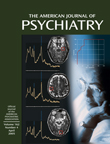Ethics is a topic of increasing salience in modern society. The multiplicity of theoretical perspectives and the diversity of practical ethical dilemmas in modern society make ethics a topic of increasing complexity as well.
Professor Aiken’s text seeks to bring coherence to our understanding of moral aspects of 21st century life experience and clinical practice. The result is a unique and expansive text, which, unfortunately, does not have sufficient theoretical or empirical grounding to represent academically rigorous scholarship in the field. Many readers will nevertheless enjoy this book for its sheer breadth and eclecticism.
The first chapter of the two-part book covers the conceptual basis of ethics as informed by insights drawn from religion, behavioral science, and philosophy. The next chapter focuses on moral development, discussing a range of perspectives from psychoanalysis to Piaget and from the “Defining Issues Test” to the moral impact of different parenting styles. Subsequent chapters address differences in moral conduct of individuals and groups as reflected in social scientific data and key issues in education such as the “Character Education Manifesto” and fundamental values of academic integrity.
The second part of the book focuses on ethical issues, principles, and practices in different applied contexts. The chapters include bioethics, research ethics, business ethics, ethics in law and government, media ethics, sports and sexual ethics, and environmental ethics and international relations. Aiken treats a wide set of intriguing issues such as euthanasia, research misconduct, ethics and war, professionalism in the military, and “cyberethics.”
The book reads like a long commentary rather than a formal analysis—Aiken freely offers his perspectives throughout the text. For example, in the chapter on moral education he states,
During the past few decades, violence, murder and suicide, precocious sexual behavior, and other immoral and illegal behaviors have continued without appreciable reduction among American children and adolescents. The decline in ethics and morality has, however, not gone unnoticed.
Assertions of this nature make the text interesting, provocative, and readable. Subsequent authors (building on this text) will want to develop the empirical and conceptual substantiation needed to support—or refute—Aiken’s observations.
The glossary at the end of the book is extensive. For instance, Aiken provides a mix of definitions of colloquial terms (“cooking data” and “bait-and-switch”), scientific and clinical concepts (“inheritable genetic modification,” “attention deficit hyperactivity disorder” and “ego ideal”), legal terms (“usury” and “antitrust legislation”), cross-cultural beliefs and religious ideals (“Dukkha,” “Jen,” “Jihad,” and “Diaspora”), as well as subtle philosophical concepts (“categorical imperative” and “deontology”). A strength of the book is special features such as visually accessible tables and the series of questions and URLs for web sites with further information at the end of each chapter.
In sum, this book is unusual for its ambitious scope and atypical style. The writing is very clear and readable, and the structure of the text is evident. Some readers may take issue with its editorial style and with Aiken’s interpretation and application of the concepts he articulates. It is best viewed as a long, off-beat “treatise,” as it is accurately described on the back cover. It is a document that challenges readers to think in a more eclectic and interdisciplinary manner, and it will leave them with greater awareness of just how much ethical issues influence us personally and professionally on a daily basis.

